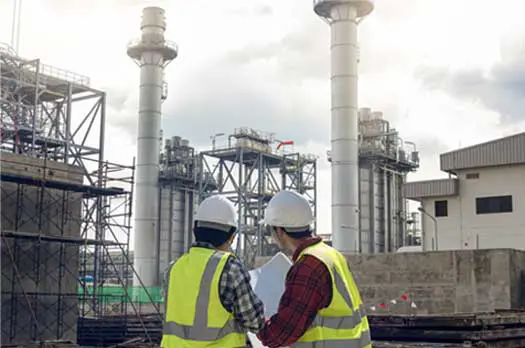Air Quality Compliance and Permits
- RSB Environmental is the leading authority for Air Quality Compliance, Texas Air Permits, Air Emission Inventory and Greenhouse Gas Inventory for multiple industries throughout Texas.
- Fast Turnaround and Affordable (TCEQ) Air Compliance for first time permits or renewing current permits by a licensed professional engineer.
- RSB Environmental has vast expertise performing PBRs, NSRs, and Emissions Inventories in accordance with TCEQ rules at extremely affordable rates.
- All Air Quality Compliance, Inventories and permits will be completed by environmental professionals with a minimum 10-year's experience.
Request a free custom quote or call 1-833-910-2535
- RSB Environmental is the leading authority for Air Quality Compliance, Texas Air Permits, Air Emission Inventory and Greenhouse Gas Inventory for multiple industries throughout Texas.
- Fast Turnaround and Affordable (TCEQ) Air Compliance for first time permits or renewing current permits by a licensed professional engineer.
- RSB Environmental has vast expertise performing PBRs, NSRs, and Emissions Inventories in accordance with TCEQ rules at extremely affordable rates.
- All Air Quality Compliance, Inventories and permits will be completed by environmental professionals with a minimum 10-year's experience.














Reviews
WHAT OUR RECENT CLIENTS SAY ABOUT US
Sachin and his team at RSB Environmental are very helpful with our company’s environmental needs. Always courteous and informative in regards to our questions.
RSB Environmental is a great company, they are easy to work with and handle all our Environmental needs in a friendly professional way. I would recommend RSB Environmental for all your company’s environmental needs.
What Are Air Pollution Emissions?

Air emissions are emitted from point sources (large stationary such as fossil fuel fired power plants, smelters, industrial boilers, petroleum refineries, and manufacturing facilities) and non-point (area, on-road mobile, non-road mobile, and biogenic) sources. The Texas Commission on Environmental Quality (TCEQ) authorizes these types of emissions
Permitting
-
Permits by Rule
Facilities that will not make a significant contribution of air contaminants to the atmosphere if operated or constructed with certain restrictions. -
Standard Permits
Standard permits are authorized under Chapter 116, Subchapter F, and are issued one of two ways, by the commission. -
Permits to Construct
Describes what type of permit is needed before construction can begin, and provides links to those permits, which provide forms and any guidance available. -
Portable Permit Relocation and Change of Locations
Portable permits contain “relocation conditions” which typically contain control requirements and future site authorization instructions for seeking approval from the appropriate regional office and distance limitations. -
Flexible Permits
A flexible permit allows an operator more flexibility in managing his operations by staying under an overall emissions cap or individual emission limitation.
Air Operating Permits (Title V)
- Temporary Operating Permit
- General Operating Permit
A General Operating Permit (GOP) provides a streamlined application and permitting process for sites that are similar in terms of operations, emission units, and applicable requirements. These GOPs provide an alternative permitting mechanism under 30 TAC Chapter 122.
Four Oil and Gas (SIC codes 1311, 1321, 4922 and 4923) General Operating Permits GOP 511, GOP 512, GOP 513 and GOP 514 were developed according to a given counties attainment/non-attainment status. GOP 517 (SIC code 4953) for municipal solid waste landfills covers all counties in the State of Texas. GOP 518 authorizes Title V major or minor, permanent and temporary source air curtain incinerators (both fireboxes and trench burners) used for the disposal of 100 percent wood waste, 100 percent clean lumber, or 100 percent mixture of only wood waste and/or clean lumber and that are authorized by the air curtain incinerator permit by rule (GOP 518).
Sites authorized by case-by-case new source review (NSR) permits do not qualify for a GOP. To qualify for a GOP, sites need to be authorized by standard permits and/or permits-by-rule. Authorizations other than standard permits and/or permits-by-rule are considered case-by-case authorizations. Out of compliance services units do not qualify for a GOP. Other qualification criteria can be found in the GOPs. Additionally, from time to time, GOPs are revised, and, every five years, GOPs are renewed. GOP permit holders or owners/operators needing, and qualifying for, GOPs may need to submit a permit application to address changes due to revision or renewal of a GOP.
- Site Operating Permit
Project Experience:
RSB has worked with multiple industries in Houston-Galveston area, helping them to obtain a first time permit or renewing current permits. One of our most recent projects relates to a facility located in Houston, SIC Code 3569 and 3559. The facility implemented a filter that captures 99.9% of the air pollutants that their operations emits. The system will be operating more hours that what was permitted in the current permit. RSB environmental help them to update the permit by a minor & renewal application. Some of the documents submitted are:
- PI-1R Form
- Maximum Emissions calculations
- Emissions Point Summary table
- Plot Plan
- Process flow diagrams
- Site map



- Title V, PSD, NSR, NNSR, and Minor Source, and Air Permitting
- NAAQS, Air Toxics, and Risk Assessment Air Dispersion Modeling
- BACT, RACT, LAER, MACT Pollution Technology Evaluation
- Compliance Documentation, Certification, Tracking, and Auditing
- Regulatory Applicability Determinations
- Air Emission Inventory Reporting
- Stack Testing Assistance
- Risk Management Program and Process Safety Management Development
- EPCRA Compliance Reporting
- Data Management Systems Development
- Greenhouse Gas Inventory and Emission Reduction Strategies
- Air Emission Inventory
- Owner/Operator Representation and Support for EPA & State Inspections
- Compliance Auditing
- New Source Performance Standards Reviews
What is Air Quality Compliance?
Air quality compliance refers to the adherence to regulatory standards and guidelines set forth by the Environmental Protection Agency (EPA) and other state and local authorities in the United States. These standards are designed to protect public health, the environment, and overall air quality by limiting the emission of harmful air pollutants. Under the Clean Air Act (CAA), the EPA establishes the National Ambient Air Quality Standards (NAAQS) for common air pollutants, such as ground-level ozone, particulate matter, carbon monoxide, sulfur dioxide, nitrogen dioxide, and lead.
To achieve air quality compliance, organizations must obtain necessary permits for their stationary emission sources, like power plants and industrial facilities, and implement appropriate emission control technologies. Regular monitoring and reporting of emissions data to the EPA or state agencies is also required. Compliance with air quality regulations not only ensures a healthier environment but also minimizes the risk of fines, penalties, and other consequences associated with non-compliance. As a result, air quality compliance plays a crucial role in creating a cleaner and safer atmosphere for present and future generations.
WHY CHOOSE RSB ENVIRONMENTAL FOR YOUR TEXAS AIR PERMITTING NEEDS?
- Professional Service
- Licensed Engineering Firm
- Fast Turnaround
- Competitive Pricing
- $1M Professional Liability Insurance
- Completed thousands of PBRs, NSR, Emissions Inventories with TCEQ
Our Service Areas
Frequently Asked Questions
What is air quality compliance?
The Air Quality Compliance ensures that industry, businesses, institutions, and individuals follow the Agency of Natural Resources’ air quality regulations and air pollution control permits. This is to meet that air quality standards.
What is the air quality standard?
Air quality standards are levels of air pollutants that are prescribed by regulations and may not be exceeded during a specified time period in a defined area.
Who regulates air quality in Texas?
Texas Commission on Environmental Quality (TCEQ) in compliance with the original Texas Clean Air Act (“TCAA”) which was enacted in 1965. The goal is to protect the state’s air resources as well as the people’s health, general welfare, and physical property. These mandates were then assigned to the Texas Air Control Board.
Which US agency oversees air quality compliance?
The primary agency responsible for overseeing air quality compliance in the United States is the Environmental Protection Agency (EPA). The EPA sets and enforces air quality standards under the Clean Air Act (CAA) to protect public health and the environment from harmful air pollutants.
What are the key components of air quality compliance?
Air quality compliance involves meeting the National Ambient Air Quality Standards (NAAQS) for common air pollutants, obtaining necessary permits for emissions from stationary sources (such as power plants and industrial facilities), implementing emission control technologies, and regularly monitoring and reporting emissions data to the EPA or state agencies. Organizations must also stay up-to-date with regulatory changes and ensure staff is trained on proper procedures and best practices.
Our Registrations and Certifications







Industrial Hygiene

Engineering

Safety

Environmental Compliance





